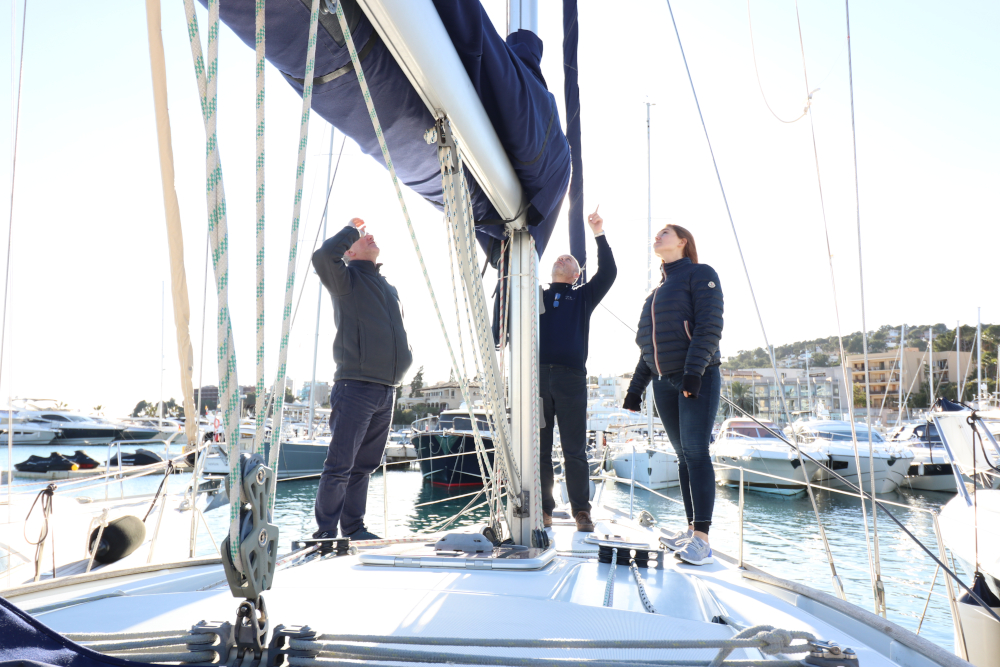
The Day Skipper qualification confirms that the successful candidate has the knowledge needed to skipper a yacht on shorter, coastal cruises during daylight. The Royal Yacht Association administers the qualification. It is a part of a series of qualifications that include Competent Crew, Coastal Skipper and Yachtmaster. While the qualification is primarily for the United Kingdom it is widely recognised internationally.
Once on board, you’ll cover all aspects of yacht sailing; how to trim sails, plan a passage, to moor and anchor safely. If you have previously taken an RYA Competent Crew course, these tasks will feel familiar. The main difference with RYA Day Skipper is that you’ll be making the key decisions on everything – from what to do in an emergency, where and how to berth the yacht, to when dinner should be served.
You’ll learn how to delegate jobs effectively and encourage and motivate crew members when needed. You will also be in charge of all aspects of safety management on board, from equipment and the yacht to the well-being of everyone on board.
Pre-course requirements
- Minimum age 16
- 5 days, 100 miles, 4 night hours on board a sailing yacht
- Assumed knowledge in basic navigation and helmsmanship
- It is recommended you attend the Day Skipper shore-based course beforehand
Recommended reading
- RYA Day Skipper Handbook
Bring with you on the day
- Waterproof clothing
- Sunscreen
Course Details
- Duration: 5 days (standard) or 9 days (extra)
- Start and finish time: 09.30 to variable
Course Syllabus
- Preparation for sea
- Deck work
- Navigation
- Pilotage
- Meteorology
- Rules of the road
- Maintenance and repair work
- Engines
- Victualing
- Emergency situations
- Yacht handling under power
- Yacht handling under sail
- Passage making
- Night cruising
Certification
- The Day Skipper Sail Practical (Non-Tidal) Certificate is awarded on successful completion
Post Course
- At the end of this course you can also include the one-day VHF/DSC Marine Radio course
- Note that sail training courses taken in the Mediterranean are classified as non-tidal.




